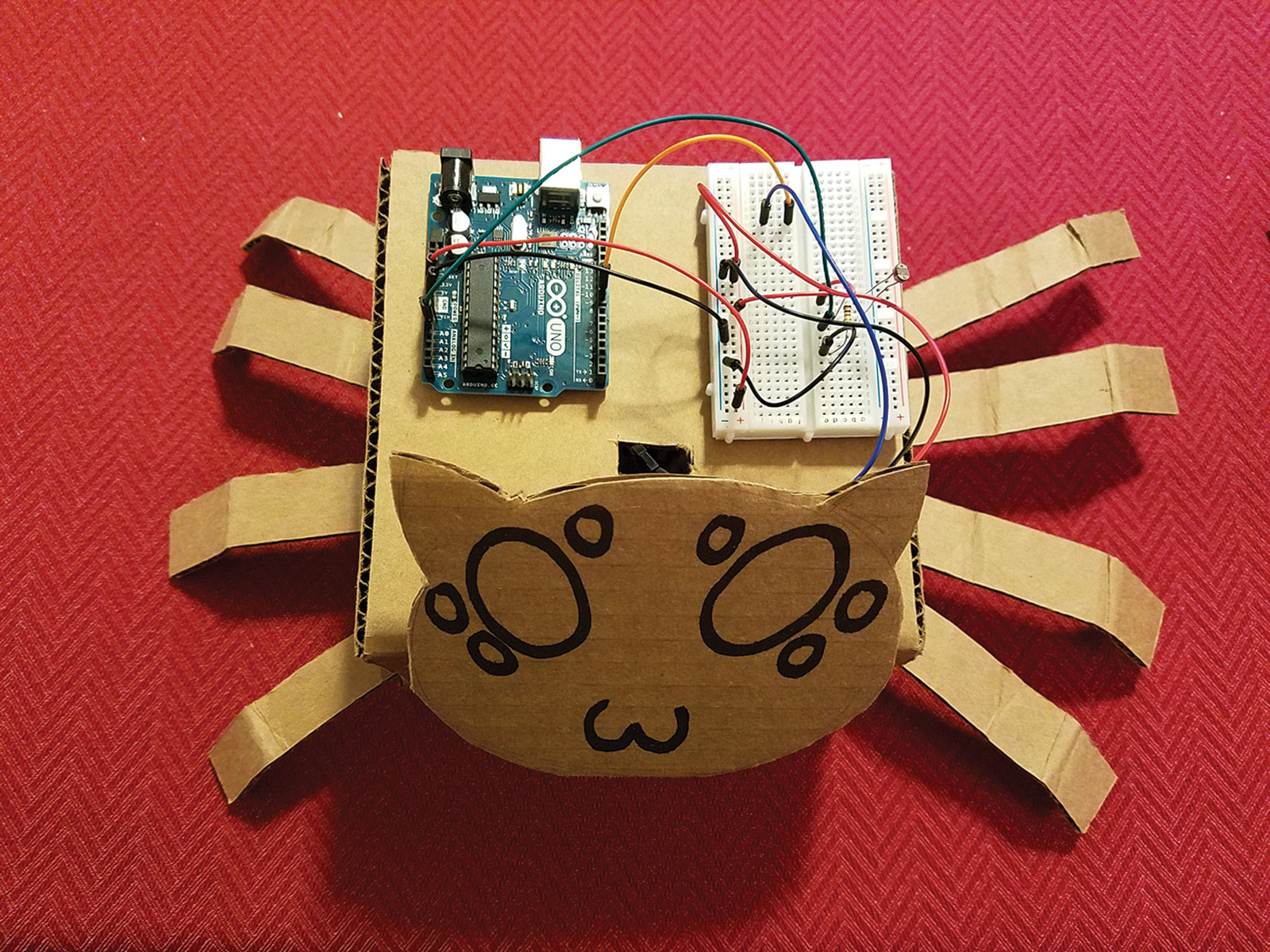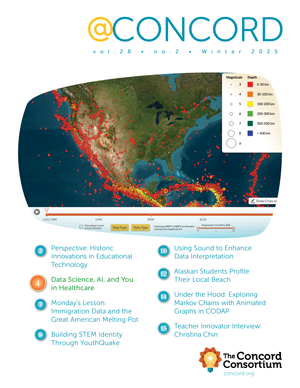News at Concord Consortium
The Concord Consortium is happy to announce the following new grants from the National Science Foundation.
Paper Mechatronics
Engineering design requires interdisciplinary ideas and imagination. A resourceful engineer finds ways to build models, use new materials, and solve unexpected problems. Schools, museums, and afterschool programs are providing engineering activities. Yet their ability to offer high-quality experiences that introduce engineering design practices to a broad audience is limited by cost, complexity, and poor educational design. The Concord Consortium, with the University of Colorado’s Craft Technology Lab and the Children’s Creativity Museum in San Francisco, is creating a new genre of “high-low tech” learning materials that blend classic papercrafts and cutting-edge “Maker” electronics technologies. The goal is to improve young people’s ability to undertake creative, compelling, open-ended engineering design projects. Projects include design problems, computationally enhanced papercrafts, “smart” crafting tools, design software, and instructional resources. Project research explores how novices develop adaptive expertise in this technologically rich learning environment.
Crowdsolving the Energy Challenge
The Concord Consortium will develop and test a citizen science program that engages youth in energy issues through scientific inquiry using innovative technology. The project will create the Infrared Street View, a program that aims to produce a thermal version of Google’s Street View using an affordable infrared camera attached to a smartphone that collects thousands of temperature data points each time a picture is taken. The Infrared Street View program provides a web-based platform to view and analyze massive aggregated, geotagged thermal data to identify energy losses. The project will start with school, public, and commercial buildings in select areas where performing a thermal scan of the buildings and publishing their thermal images for educational and research purposes are permitted. Students can become change makers by contributing trustworthy scientific data and authentic engineering solutions to crowdsourcing programs to help solve the energy challenge.
Computing with R for Mathematical Modeling
The problems facing the nation and the globe increasingly demand complex, computational solutions. To prepare students, a new project is integrating computing into high school mathematics classrooms. Mathematics and computing are inherently connected: computing builds upon many mathematical concepts and skills, and math achievement is linked with computational thinking skills. Yet mathematics and computing are both challenging domains, and developing expertise in either is not easy. This project will support students in integrated learning of the complex domains of math and computing, interweaving the two disciplines for mutual reinforcement. Leveraging R’s open-source ecosystem, it will develop and deploy a learning platform that integrates R computing resources, curriculum materials, automated assessment and tutoring, and teacher professional development resources.
Science and Engineering Education for Infrastructure Transformation
The Concord Consortium and Purdue University are conducting research and development on engineering education with the goal of inspiring and preparing high school students to meet the challenge of building tomorrow’s infrastructure. Innovative technologies and curriculum materials support project-based learning of science, engineering, and computational thinking applied to the “smart” and “green” aspects of the infrastructure. The project is developing two innovations: 1) The Smart High School, an engineering platform for designing Internet of Things systems to manage the resources, space, and processes of a school based on real-time analysis of data collected by sensors deployed by students on campus and 2) the Virtual Solar World, a computational modeling platform for students to design, deploy, and connect virtual solar power solutions for their homes, schools, and regions. The research seeks to identify technology-enhanced instructional strategies that can foster the growth of skills and self-efficacy in scientific reasoning, design thinking, and computational thinking.
Like Us, Follow Us
We’re thrilled to have you as friends and followers. Get the latest updates on happenings at the Concord Consortium by following us on these sites.
This material is based upon work supported by the National Science Foundation under grants IIS-1735836, DRL-1712676, DRL-1742083, and DRL-1721054. Any opinions, findings, and conclusions or recommendations expressed in this material are those of the author(s) and do not necessarily reflect the views of the National Science Foundation.

